
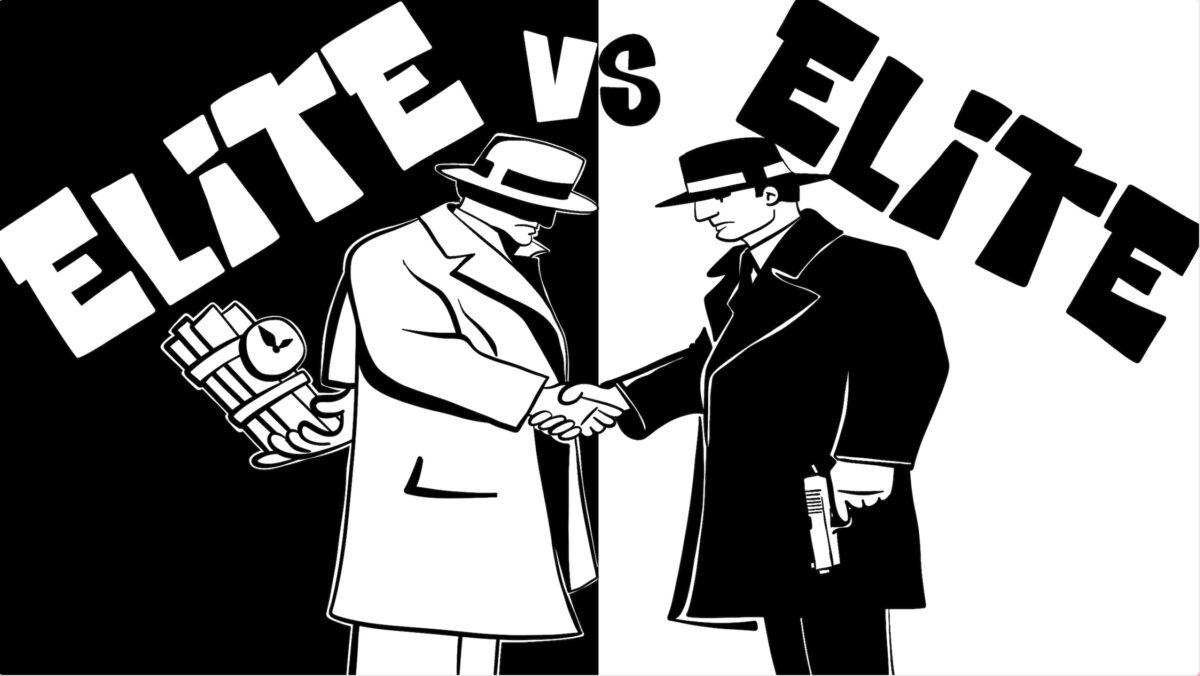
Fine Woke Cannibals
by Matt Taibbi | Dec 14, 2024
If a book gets you thinking about tri-state killing sprees by the middle pages, it’s probably worth reading. Musa al-Gharbi’s We Have Never Been Woke achieves the feat in the introduction, when the author unveils a character called a symbolic capitalist. I’d have gone with a term needing no explanation, like “laptop-class douchebag,” but al-Gharbi works in academia, so:
Symbolic capitalists are professionals who traffic in symbols and rhetoric, images and narratives, data and analysis, ideas and abstraction (as opposed to workers engaged in manual forms of labor tied to physical goods and services)… People who work in fields like education, science, tech, finance, media, law, consulting, administration, and public policy… If you’re reading this book, there’s a strong chance you’re a symbolic capitalist. I am, myself, a symbolic capitalist.
Musa al-Gharbi grew up in a “smallish southern Arizona military town,” is black, and before embarking on a PhD program at Columbia supported a family of four “selling shoes at Dillard’s.” Apart from those details, and a few suspiciously merciless descriptions, you’d never think the book was written by an outsider. With its Ivy-credentialed author and Princeton imprint, We Have Never Been Woke is academia’s first real attempt to self-diagnose its recent bout with madness. Its many surprises helped reframe my understanding of the last decade-plus of American history, when I wasted huge amounts of time puzzling, puzzling, puzzling.
I understood why some Democrats considered Bernie Sanders a nuisance needing squashing, but smearing him as a racist misogynist Putin acolyte meant losing many of his voters, in election years no less. What possible end could that serve? Why during the “summer of Floyd” were there so few concrete structural demands on police procedure, but so many purges of alleged racists? Why did a historically speech-protecting party suddenly endorse huge digital censorship programs, even after they became political liabilities? Why cancel Barbara Ehrenreich, for God’s sake?
These turn out to be the wrong questions. Republicans often made a similar mistake in thinking woke intellectuals were extreme ideologues driven by hatred for the ordinary, family-oriented conservative. In fact few “symbolic capitalists” know any conservatives, and the only thing most know about conservatives is they can be utterly denounced with zero social cost. As for ideology, unless “believing everything all my friends think” counts, “symbolic capitalists” really don’t have one.
Hence the title of We Have Never Been Woke, which shows that a generation of McCarthyist lunacies was neither a neo-Marxist movement, nor an anti-populist partisan gambit, but a vulgar scrum for resources disguised as political struggle, conducted wholly within the top of the wealth distribution. Rural conservatives, independents, and institutions like schools and the press were collateral damage to history’s dumbest upper-class food fight. And I was complicit! This book forced me to realize that through one of the biggest errors of my career, I helped launch the woke Hindenburg:
From the book’s second chapter:
To pinpoint the beginning of the Great Awokening, it seems most accurate to say it began… with the emergence of the Occupy Wall Street movement. This claim may be shocking to some readers. In the popular discourse, the Occupy movement is often discussed as being in tension with, or even antithetical to, identitarian approaches to social justice…
In the fall of 2011, when anti-bank protesters began gathering at Zucotti Park in lower Manhattan, I was curious. Having crisscrossed the country covering corruption and fallout from the 2008 crash, seeing everything from high-speed foreclosure courts in Florida to a swap-driven sewer boondoggle in Jefferson County, Alabama to plundered pension funds in Rhode Island, I expected pitchfork-style blowback to arise from the population somewhere. Occupy Wall Street wasn’t it, but I cheered it anyway.
The Occupy movement seemed to say the right things, beginning with a brilliant catchphrase: “A protest of the 99%, against the disproportionate power of the 1%.” It was true that the top 1% of the American population controlled a disproportionate amount of the country’s wealth! Also, as I knew from working on the not-yet-published book The Divide, the very wealthy in comparison with poorer counterparts enjoyed a comically forgiving justice system, often experiencing something closer to a spa treatment than court even when accused of serious crimes. I was sympathetic.
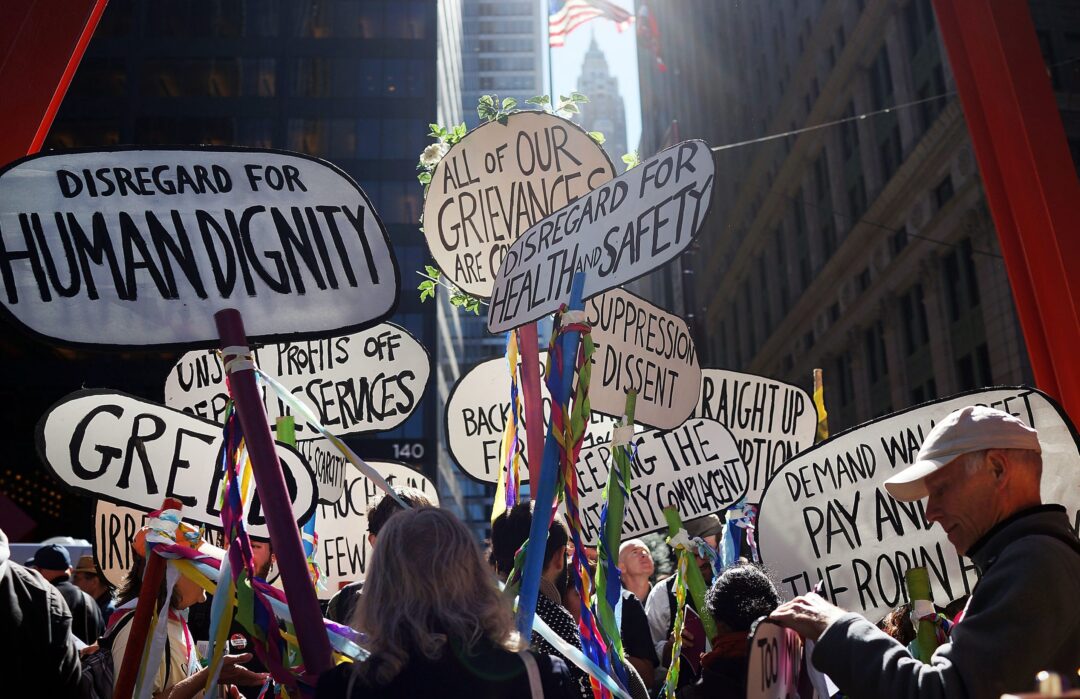
Occupy Wall Street. 2011
Because the movement was fueled in part by my Rolling Stone articles (OWS even held “squidding” events in front of bank offices), I felt semi-responsible. Stupidly, I began offering advice to head off critics of the movement’s seeming lack of message, suggesting concrete goals like breaking up “Too Big to Fail” banks. Seemingly every celebrity from the world of left-leaning journalism descended upon Zucotti Park to chronicle what each seemed to think was the beginning of the long-awaited Revolution. Many were friends, or friends of friends. The arrival of celebrity chroniclers led to scenes straight out of American Psycho. “Hey, is that Arianna Huffington?” “Where?” “No. But is that Ted Rall?” “No, it’s Will Bunch…” And so on. Noam Chomsky sightings were the left’s version of a UFO craze.
I participated in embarrassing sixties-style “teach-ins,” mumbling primers on mortgage securities to crowds of very bored Columbia and Princeton students. Then I watched in confusion as outlets like The Atlantic wrote cheeky stories like “Matt Taibbi and Occupy Wall Street Complete Each Other” describing me as a fake outsider and the “Gloria Steinem of Occupy” in the same breath. Finally organizers put me out of my misery, explaining I could stop “helping,” since the lack of message was the point. Occupy was about “building something new,” they said, or “creating a space for protest.”
Readers, I bought it. In November, 2011 I wrote “How I Learned to Stop Worrying and Love the OWS Protests,” saying I understood Occupy as a critique “not just of Wall Street, but everything,” and a “visceral, impassioned, deep-seated rejection of the entire direction of our society.” Hoping to be encouraging, a Rolling Stone fact-checkers said the piece recalled Matt Stoller’s description of Occupy as a “church of dissent.” This instead triggered instant max-pucker. I helped build a church? Of what exactly? Suddenly I couldn’t ignore signs of trouble in the form of drum circles, “sparkle fingers,” and, worst of all, Guy Fawkes masks, as protesters stopped talking about banks or finance and instead worked on ideas like “reimagining hierarchy,” in language that had no hope of being understood outside the group.
I should have listened to friends like the aforementioned Frank, who wrote a piece in The Baffler called “To the Precinct Station” saying he knew the game was up once he heard an Occupy panel discussion about the idea of “speaking for yourself.” He quoted one of the panelists:
What I would note, is that people can only speak for themselves, that the self would be under erasure there, in that the self is then held into question, as any poststructuralist thought leading through anarchism would push you towards. . . . I would agree, an individualism that our society has definitely had inscribed upon it and continues to inscribe upon itself, “I can only speak for myself,” the “only” is operative there…
“As soon as I heard this long, desperate stream of pseudointellectual gibberish,” Tom wrote, “I knew instantly that this thing was doomed.” He added: “OWS tasted overwhelmingly of one monotonous flavor: academia, with a subtle bouquet of career activism.”
The obvious problem of Occupy was always that the upscale, mostly white crowds at Zucotti Park were not the same people I met in foreclosure courts. The latter group was multi-racial, lower-middle-class-to-poor, and made up of Republicans, Democrats, Independents, non-voters, everyone. At the Jacksonville, Florida “Rocket Docket” where families were tossed from homes every three minutes the rage level was so high, I worried judges would be beaten to death by the angry mothers and unemployed Dads awaiting foreclosure rulings. If you could match the rage in that room to Occupy’s message, you’d have something.
But Occupy was never interested in actually fixing issues like robosigning or “Too Big to Fail.” Occupy instead soon highlighted supposed discoveries in building “functioning communities of mutual support,” i.e. camping, cooking, and leaderless discussions about leaderless activism. Then there was the other thing. As Tom wondered: “Dear god why, after only a few months of occupying Zuccotti Park, did Occupiers feel they needed to launch their own journal of academic theory?”
By December, 2011 the idea of specific complaints was pooh-poohed in the journal by Columbia feminist comp lit professor Judith Butler, who explained that “any list of demands would not exhaust the ideal of justice being demanded.” Just being an assemblage of “bodies” was its own statement:
The bodies assembled “say” we are not disposable, whether or not they are using words at the moment… What they say, as it were, is that we are still here, persisting, demanding… a release from precarity…This happens only by… enacting the demands of the people through the gathering together of bodies in a relentlessly public, obdurate, persisting, activist struggle… As bodies, we suffer and we resist together, in various locations, exemplify that form of the sustaining social bond that neoliberal economics has almost destroyed.
Butler was saying that by gathering mute in various locations, protesters were implictly asking for a “release from precarity,” which I thought meant, “We want more financial security, but without having to ask.” Also, instead of finding ways to keep families out of foreclosure, she seemed to say Occupiers could synthesize their ‘sustaining social bond’ through a persisting, obdurate effort to “suffer” together. By camping!
A decade later, on September 17. 2021, New York magazine published: “Occupy Wall Street Changed Everything.” It re-cast Occupy as having “inaugurated a new era of defiant protest” whose “most concrete legacy” was “the insurgent energy it unleashed to transform the Democratic Party, pushing it to be more responsive to ordinary people.”
Think about the years of tirades, including in New York, against “contrarians” who “undermine trust” in democracy. Now read the piece’s money passage:
At the end of the first day, the decision was made to demand nothing — on the grounds that demands of the state only legitimized a corrupt system, one in which our ostensible representatives do the bidding of deep-pocketed donors and call it “democracy.” The movement’s adoption of open assemblies was a reaction against the existing order and an homage to dissenters in other countries who had created similar forums. Participants deliberated and made decisions directly, using a system of “modified consensus,” meaning proposals had to reach a threshold of 90 percent unanimity to pass.
This was why few at Occupy were interested in helping get a bipartisan “Too Big to Fail” bill over the goal line. Why bother? Democracy, or “democracy” as New York put it, was a game rigged by money. Participating would give it credibility it didn’t deserve. What’s amazing is that both Sanders and Trump came to similar conclusions about the “rigged game,” but their answer was throwing bums out at the ballot. The “symbolic capitalists” were too lazy for that. The end of their belief in ideas like democracy and free speech came when they realized they had a shortcut available.
“Modified consensus,” which looked merely bizarre when at a speech you’d see a few stray “sparkle hands” quickly turn to a full room of them, was a new way of thinking that eliminated the need for leaders or dissent by creating instant unanimous disapproval. Such movements were not good at settling on concrete strategies, but proved effective as frameworks for a new orthodox liturgy. The congregation camped, considered, and judged.
We Have Never Been Woke explains the vagueness was more than pretentious:
The Occupy movement’s approach to social change was intensely academic and, in the name of “inclusivity,” was outright hostile to politics per se. Rather than advocating for concrete policies… the movement was primarily focused on villainizing those above…
Once, a Princeton or UChicago freshman could expect a clear path to a pillow life in consulting or a think-tank just by making it through four years without binge-drinking injuries. For some the ideal outcome was never leaving school, becoming professional experts on Comparative Media or Gendered Organizational Whateverism, living on stipends railed against as insultingly small (except by outliers like al-Gharbi, who describes being amazed someone would pay him to be a student).
By the mid-2010s, the overwhelming majority of jobs projected to be available between 2020 and 2030 involved tasks like waiting tables, changing bedpans, or being “passenger vehicle drivers.” In the best case, one could be a software developer, but who knew how to code? America’s symbolic humans decided to compete in new ways.
The “church of dissent” became a political greenmail operation, learning to relax outrage toward patriarchy-tinged targets only after the correct people were hired to replace badthinkers and the right amount of money shelled out to fix “historical” injustice. If you check under the surface of even the silliest-sounding “protests,” you’ll almost always find the money demand somewhere. This 2015 Washington Post article was about Princeton students occupying the president’s office to demand removal of “racist” Woodrow Wilson statues:
[Protesters also] demanded “cultural competency training” for all faculty and staff…demanded that classes on “marginalized peoples” be added to the university’s required courses…
From executives to university presidents, leaders soon learned to bend to every demand, no matter how ridiculous. In my own cancelation episode at First Look Media, evidence of “gendered” bias in a hostile work environment complaint came when a female job applicant chose Fox over us, and I too loudly said, “Well, fuck her then!” I went through weeks of trial-like procedures, which mostly entailed me saying things like, “Seriously?” to stone-faced administrators.
Individuals went along because being publicly tabbed a racist or sexist was a “symbolic death” that rendered targets and their work “contaminated.” But even powerful companies and storied institutions trembled before crazy-ass complaints about correctly pronounced Chinese words or liked tweets because these were perceived to be coming from the money side of the population. That’s another insight from al-Gharbi, who refers to symbolic capitalists as “us”:
Companies have been… taking “bold” stances on culture-war issues — signaling toward antiracism, feminism, LGBTQ rights, environmentalism, and so on — as a way of selling more of their products and services, staving off potential criticism, and enhancing their public standing with people like us. Although these campaigns often alienate people who are not symbolic capitalists, companies are willing to take that hit because we have more disposable income (and are projected to control an even higher share of wealth down the line)—and we reside in mass markets to boot…
After the recent election the math on this may be changing, but it still holds as an explanation for the previously inexplicable.
We Have Never Been Woke misses opportunities for humor, is heavy on postmodern jargon, and frankly could be a lot meaner. But it’s well-researched and never stops being interesting. You’ll learn “symbolic capitalists” not only do less charitable giving than the “lower socioeconomic quintiles,” they’re more likely to use dark money and even patronize porn sites and prostitutes than supposedly sexist counterparts. Each chapter returns to the idea that the ridiculous ordeals invented in these years were designed not to make society more just, but to create gatekeeping mechanisms:
The goal, at bottom, isn’t to make everyone equal. It’s to ensure that inequalities are based on the “correct” (meritocratic) attributes…
“Bad” meritocracy is when a person is forced to compete by demonstrating market value. “Good” meritocracy is when a person rises in society by winning over unnecessary committees of pseudo-intellectual douchebags. Was that was the transformation of American capitalism implicitly demanded by the “gathering together of bodies” all those years ago at Occupy?
In America, the dumbest answer is usually the right one, and We Have Never Been Woke describes the dumbest, shallowest conceivable explanation for what befell us all in the last ten years. God help me, it feels true.


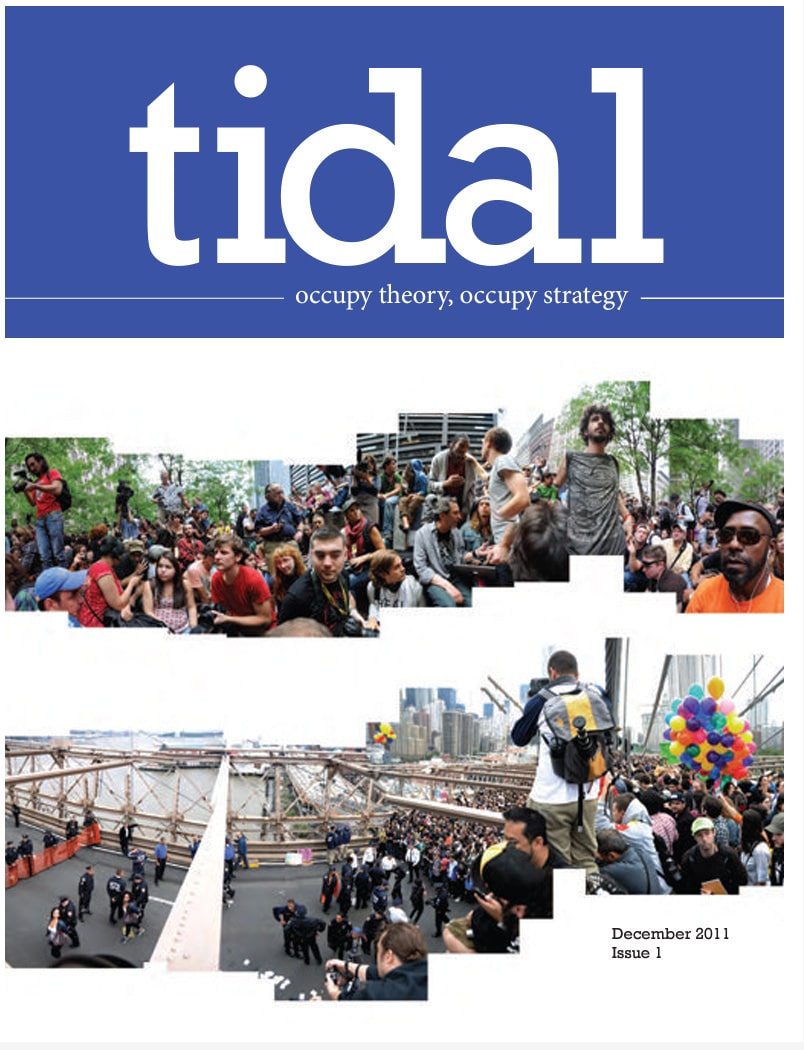
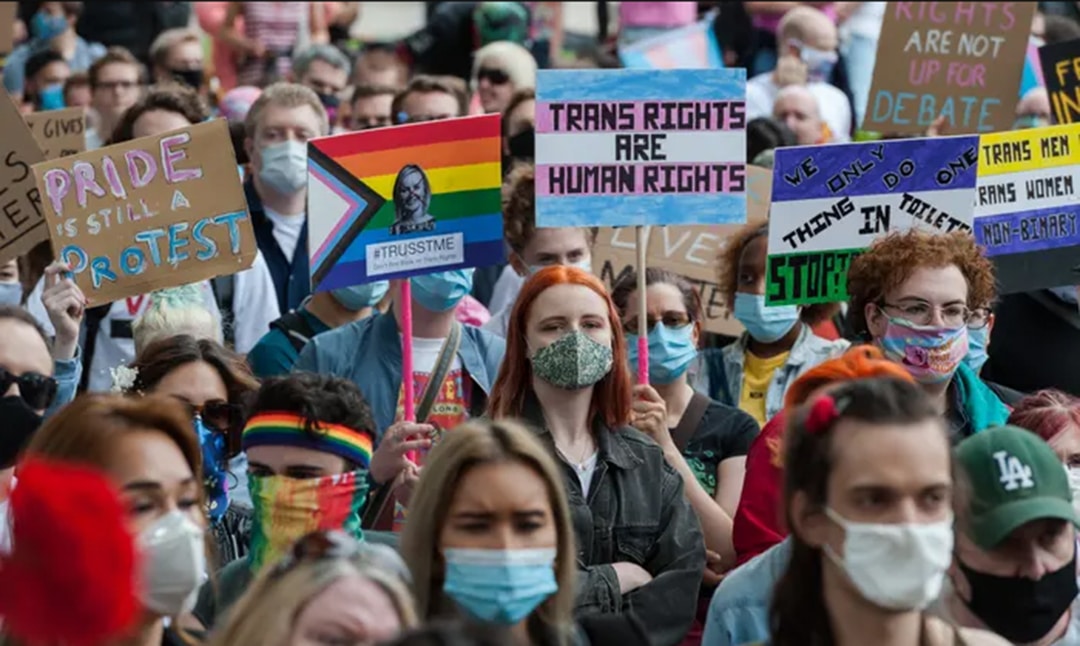
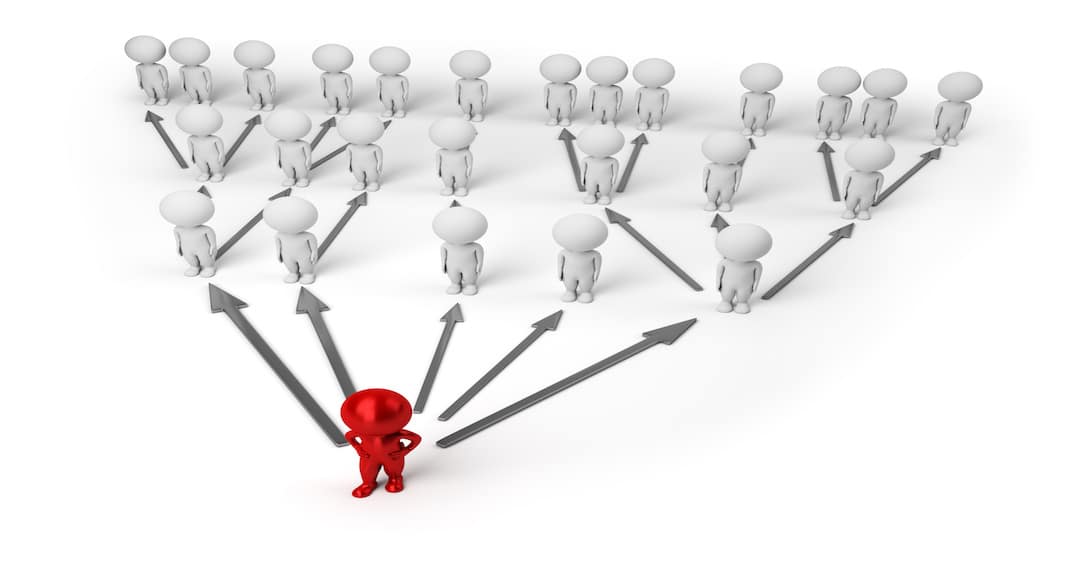
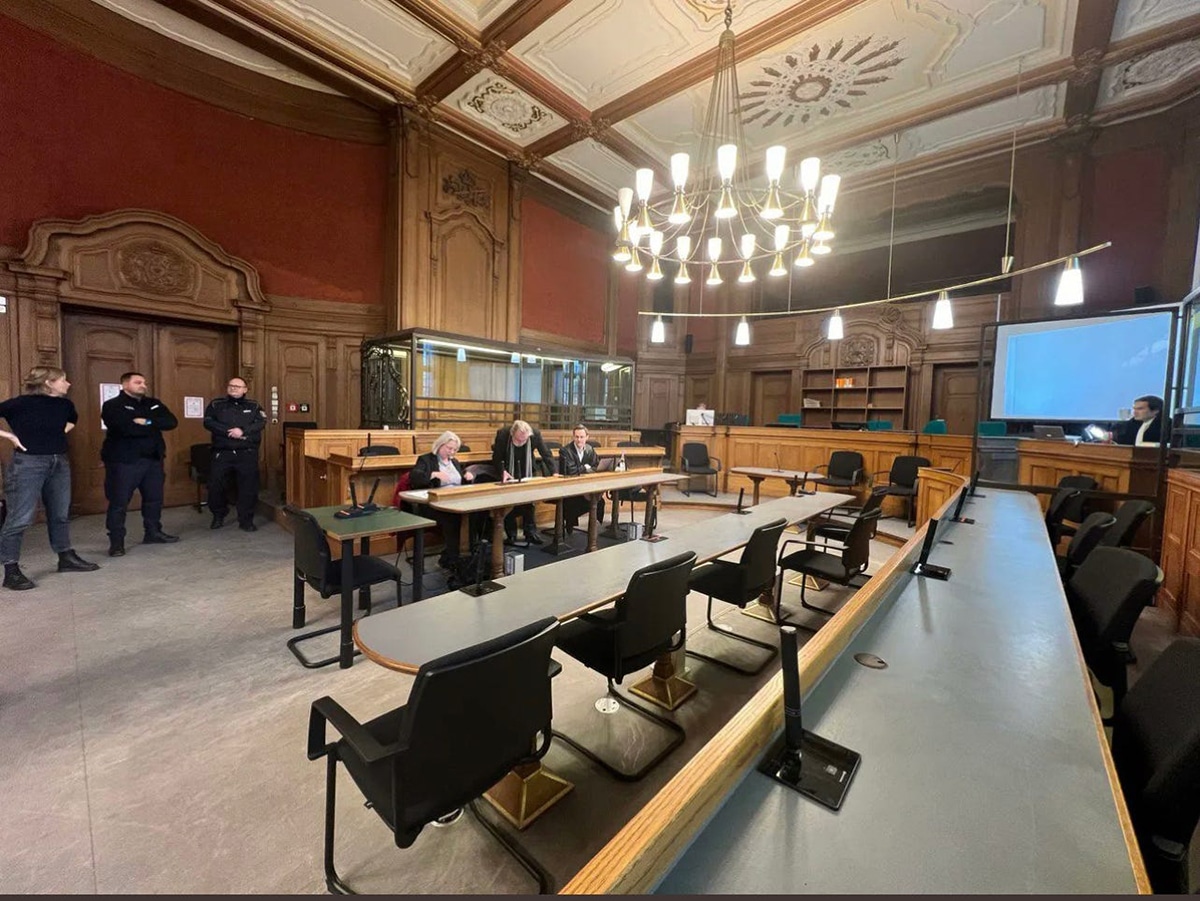

0 Comments